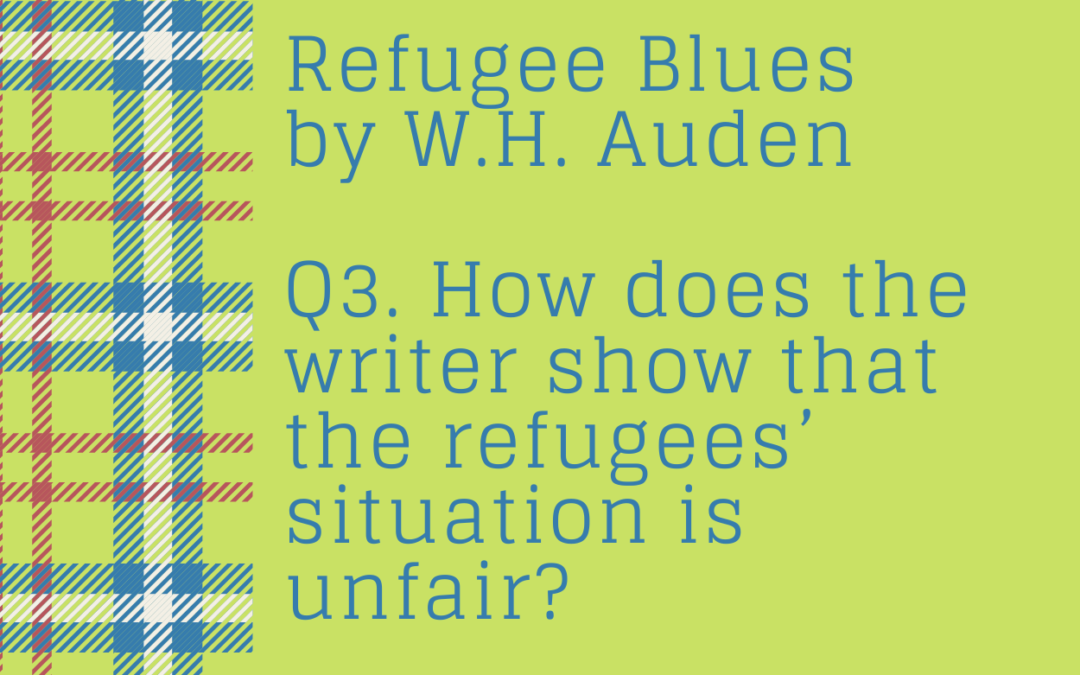Edexcel English IGCSE: Refugee Blues Model Essays
Q3. How does the writer show that the refugees’ situation is unfair?
In your answer, you should write about:
- the challenges faced by the refugees;
- the contrasts in the poem;
- the use of language.
You should refer closely to the poem to support your answer. You may use brief quotations.
Edexcel English IGCSE Model Essay by an Expert
The refugees are not welcome in their new country, although they are there through no fault of their own. Their unfair treatment is heightened by the contrasts in the poem.
The key problem faced by the refugees is that they have nowhere to go in their new country, even though there are “ten million souls” in the city already. This number is hyperbolic, but highlights the injustice of the city failing to fit in just two more people. People who are supposed to help them, such as the consul and a committee, are utterly unhelpful. The consul angrily tells them that they are “officially dead” according to their paperwork, which is a surreally illogical comment, showing the unfair bureaucracy of the system. The committee, which has presumably been put together to help refugees, tells them “politely to return next year”. Their politeness is ironically useless, since they are unable to provide the refugees with what they really need: somewhere to go “to-day”.
The injustice of their poor reception is made even worse by the fact that they have also been unfairly chased out of their own country, because they are German Jews during Nazi rule in Germany. The narrator expresses his confusion at their treatment in their home country by portraying the actions of the Nazis as specifically victimising them: “we were in [Hitler’s] mind”, and there were “ten thousand soldiers” who were searching for “you and me”. The huge force of Hitler, reflected by the sound of his voice in “thunder”, and his large army are portrayed as tyrannising these two innocent victims. This highlights the injustice of the persecution of all the Jews in Germany: innocent civilians were criminalised and hunted by a hugely powerful army.
The use of contrasts in the poem further emphasise the unfairness of the refugees’ ordeal. The narrator notes the way in which domesticated animals are treated – by being given clothes and let into houses – which contrasts with the treatment of “German Jews”. This shows that the refugees are given even lower status than animals in their new ‘home’. There are also contrasts between nature and the refugees’ situation, showing the unnaturalness of the bureaucratic system which is preventing the refugees from gaining the help they need. There is an “old” tree which “blossoms anew” each year, and this is contrasted with their “old passports” which cannot be renewed. The repetition of the adjective “old” highlights the contrast between the natural tree and the unnatural paperwork.
The refugees did not ask to be in this situation, which makes the hostility of their new hosts all the more unfair. The contrasts with nature show the senselessness of a bureaucratic system which undermines the humanity of the victims.
Students also browsed:
